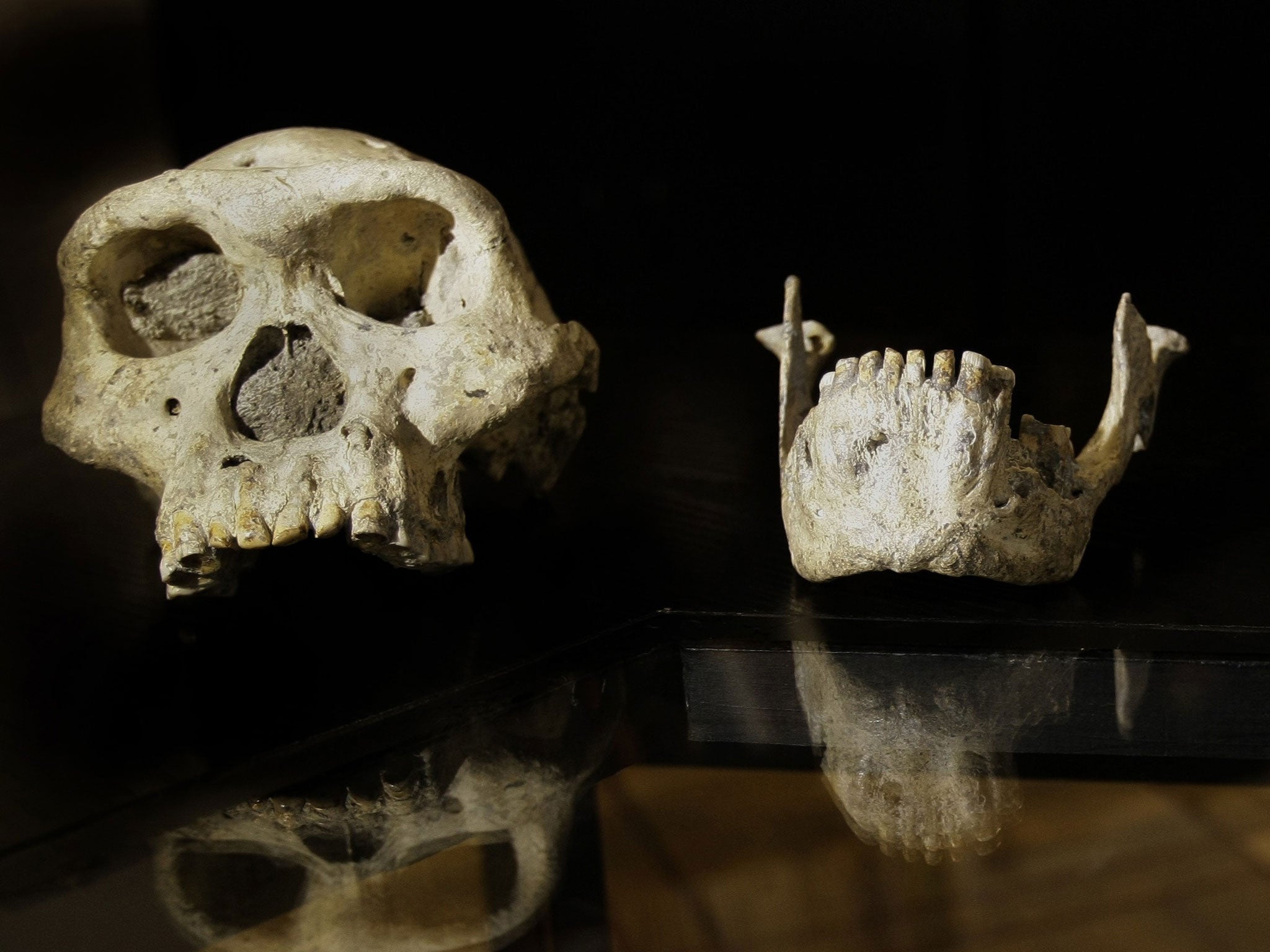Early humans migrated out of Africa through Egypt rather than Ethiopia, new study says
A study of present-day genomes of north-east Africans suggests the northern route through Egypt and the Sinai was more likely

Your support helps us to tell the story
From reproductive rights to climate change to Big Tech, The Independent is on the ground when the story is developing. Whether it's investigating the financials of Elon Musk's pro-Trump PAC or producing our latest documentary, 'The A Word', which shines a light on the American women fighting for reproductive rights, we know how important it is to parse out the facts from the messaging.
At such a critical moment in US history, we need reporters on the ground. Your donation allows us to keep sending journalists to speak to both sides of the story.
The Independent is trusted by Americans across the entire political spectrum. And unlike many other quality news outlets, we choose not to lock Americans out of our reporting and analysis with paywalls. We believe quality journalism should be available to everyone, paid for by those who can afford it.
Your support makes all the difference.Early humans migrated out of Africa more than 60,000 years ago through Egypt rather than crossing the shallow sea that separated Ethiopia from the Arabian Peninsula as some archaeologists have suggested, a study of the DNA of modern people has found.
Scientists have long argued about which of the two migratory routes the first humans took when they emerged from Africa to colonise the Middle East, Asia and other parts of the globe. Now a study of present-day genomes of north-east Africans suggests the northern route through Egypt and the Sinai was more likely.
The study analysed the genomes of 100 Egyptians and 125 Ethiopians and compared their DNA to people currently living in Eurasia and to other parts of Africa. It concluded that the ancient migratory route through the Sinai Peninsula has left its mark on the DNA of people living in Egypt today, scientists said.
Modern Egyptians show a greater genetic similarity than modern Ethiopians to present-day Eurasians which supports the idea that Egypt, and not Ethiopia, was the last stop on the African continent before early humans came out of Africa to colonise other parts of the world, they said.
“If people left Africa from the north then people who live there now should show the highest genetic similarity to Eurasians. If they left from the south through Ethiopia, then Ethiopians should show the highest similarity,” said Luca Pagani of the Wellcome Trust Sanger Institute in Cambridge, and lead author of the study published in the American Journal of Human Genetics.
“Two geographically plausible routes have been proposed: an exit through the current Egypt and Sinai, which is the northern route, or one through Ethiopia, the Bab el Mandeb strait, and the Arabian Peninsula, which is the southern route,” Dr Pagani said.
“In our research, we generated the first comprehensive set of unbiased genomic data from Northeast Africans and observed, after controlling for recent migrations, a higher genetic similarity between Egyptians than between Ethiopians and Eurasians – suggesting that Egypt not Ethiopia was the last stop,” he said.

The researchers attempted to compensate for more recent migrations of people in the region between Eurasia and Africa, which must have occurred over the past few centuries, but still found a closer connection between modern-day Egyptians and Eurasians than between Ethiopians and Eurasians.
They also found that modern Egyptians were more similar genetically to modern east Africans than to west Africans, which supported the idea more recent human migrations were not interfering with the findings.
“The most exciting consequence of our results is that we draw back the veil that has been hiding an episode in the history of all Eurasians, improving the understanding of billions of people of their evolutionary history,” Dr Pagani said.
The study found that people outside of Africa split from the Egyptian genomes about 55,000 years ago, which the split from Ethiopian genomes occurred about 65,000 years ago, suggesting that Egypt was the last stop before emerging from Africa.
“It is exciting that, in our genomic era, the DNA of living people allows us to explore and understand events as ancient as 60,000 years ago,” Dr Pagani said.
Previous genetic studies in mitochondrial DNA, which is inherited down the maternal line, have suggested a migratory route that exited Africa from Ethiopia. However, Dr Pagani said that this work is not in conflict from the latest study as it is possible that some earlier migrations did occur across the strait of Bal el Mandeb to the Arabian Peninsula.
“We believe our results provide compelling evidence for the origins of modern Eurasians. But it still leaves open the question of the migrations that led to the colonisation of Papua New Guinea and Australia very early in human history,” he said.
Join our commenting forum
Join thought-provoking conversations, follow other Independent readers and see their replies
Comments